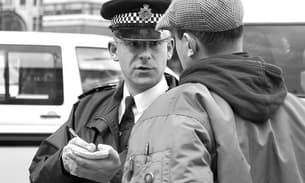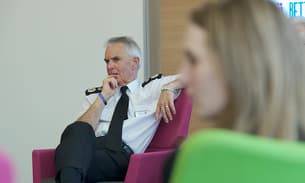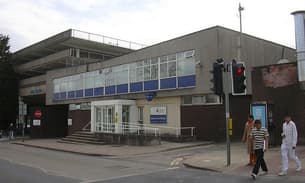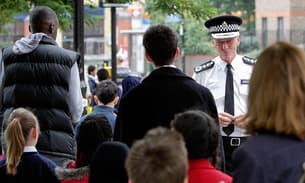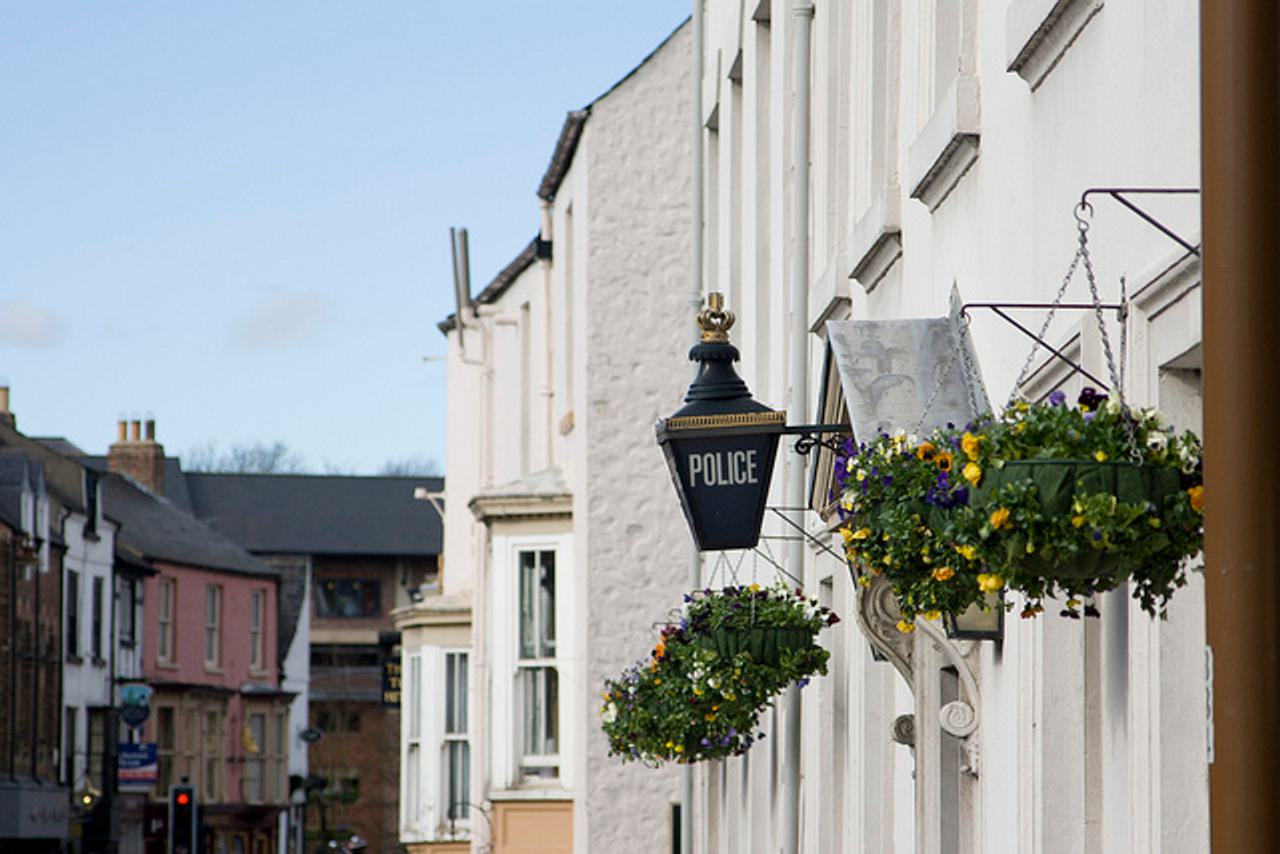
Durham, Hertfordshire and Cambridgeshire among police forces disregarding Home Office advice on recording rape allegations
Police Station in Durham by Peter Roberts on Flickr
At least eleven police forces in England and Wales are not recording rape allegations as soon as they are made despite advice from the Home Office to do so.
In February crime prevention minister Norman Baker and policing minister Damian Green wrote to all chief constables saying: ‘It is our view that every allegation of rape should be recorded as a crime at the point it is reported.’
The letter followed the revelation by the Bureau that forces across the country differed in their policy on recording rape and that some forces initiated investigations before recording a crime, no matter how credible a victim’s initial allegation.
Home Office rules state that an incident should be recorded as a crime as soon as officers are satisfied that it is more likely than not that one has been committed, and within a maximum of 72 hours from the time the incident is first logged.
A number of Police and Crime Commissioners and senior police officers told the Bureau that the 72-hour limit should be scrapped for rape allegations, which they said should instead be recorded as a crime as soon as the allegation was made.
Related story: Police chiefs call for end to 3 day delay in sex crime reporting
Her Majesty’s Inspectorate of Constabulary (HMIC) has highlighted the detrimental effect on the victim – and the criminal investigation – of investigating rape allegations before recording them as crimes.
‘If an investigating officer fails to operate on the presumption that the victim is telling the truth, he may put insufficient effort into the investigation, thus compromising its quality and therefore its prospects of success,’ HMIC said in a report on crime recording published last month.
Yet despite this concern and the recent ministerial advice the Bureau has found that eleven forces do not file a crime report as soon as a rape allegation is made.
Some of these forces – Durham, Dyfed-Powys, Hertfordshire, Wiltshire and Cambridgeshire – had lower than average recorded levels of rape. These forces’ ‘sanction detection rates’ (the percentage of cases that end in a charge, caution or summons) – in rape cases was higher than average in the year 2012/13.
Sanction detection rates are viewed as measures of success and concerns have been raised in the past about officers failing to record complex rape cases in a bid to improve detection rates.
In 2012/13, Durham Police recorded just 50 rapes, the lowest level of offences per 100,000 people in the country. It also had the country’s highest ‘sanction detection rate’ at 32%. The force told the Bureau it does not record rapes as crimes immediately, with reports being classed initially as ‘incidents’.
Surrey Police, which also recorded below-average levels of rapes in 2012/13, has said that it previously wrote allegations up as ‘crime related incidents’ rather than crimes in the first instance. However it changed its policy last year and now all allegations made by the victim – but not by third parties – are recorded as offences immediately.
If the ministers’ advice was followed it would be possible to compare, for the first time, the number of rape reports made to police in different regions and see the percentage of these which are recorded as a crime.
Marianne Hester, professor of gender and violence at the University of Bristol, said: ‘We need to know what is happening from the point at which a rape is reported to the police – not just the point at which the rape is recorded – and then at every stage as the case moves through the system.
‘Firstly that will give us a better sense of what is happening from the victim’s perspective. Secondly, without it we cannot truly compare what is happening in different forces.’
Related story: Case study: Alleged rape attempt recorded as a civil matter
The Bureau found 10 police forces that said they did not record rape immediately The Bureau asked all 43 police forces in England and Wales whether they were following the advice of the Minister for Policing issued in February to record all allegations immediately. Many forces gave ambiguous answers. But eleven forces admitted that they were still not recording rape allegations immediately despite the advice. Bedfordshire Police said: ‘We use the 72 hour rule. Rape complaints are complicated and we feel the 72 hour rule remains appropriate but we are reviewing it in light of the minister’s comments.’ Cambridgeshire Police said it recorded rape allegations as crimes immediately – but only if the report was made within seven days of the attack, so that forensic evidence was available. Officers are given up to 72 hours to record ‘historic’ rapes. Durham Police said it initially classes rape allegations as ‘incidents’. ‘This instigates the start of a full investigation with the victim as the focus,’ a spokeswoman said. ‘In line with crime recording standards, a crime of rape will be recorded on our system as soon as the “balance of probabilities test’ has been met”. This can take anything from a few minutes to a maximum of 72 hours. Our focus is always to believe the victim unless there is evidence to the contrary and we will not delay recording a crime to carry out enquiries.’ Dyfed-Powys Police said: ‘We have a clear policy which requires allegations of rape to be recorded within 24 hours of being reported.’ Hertfordshire Police said: ‘In every case we will try and establish the facts and get a full and thorough account and secure forensic evidence as quickly as we can but circumstances around each case, which are all different, may not permit us to do this immediately.’ DCI Neil Esseen of Lancashire Constabulary said allegations were recorded ‘either on a crime report, or on a log, dependent on the circumstances of the report. This is a robust, tried and tested policy that has been in place for some considerable time, and one which puts the needs of the victim at the centre of police activity.’ Merseyside Police said: ‘When a report of sexual offence is made to the force, the call handler will immediately create an incident log. A first account is then taken by the first responding officer, usually a uniformed officer, and initial investigations commence immediately. The incident is then converted to crime by a specialist officer from the force’s specialist Unity team. This process allows initial evidence gathering to commence from the outset and gives officers the best understanding of what has gone on.’ Norfolk Police said: ‘When a call is received by police, an officer is dispatched straight away to speak to the complainant and if we are aware that the allegation is of rape, the officer is a Serious Sexual Offences Trained officer. As soon as an officer has sufficient information to record a crime under the National Crime Recording Standard then they do so, the use of the 72 hours is not automatic but is available if needed.’ A spokeswoman added: ‘If reports are created too early, based on a telephone call from the victim only, experience has shown that the wrong classification can be given to a crime or assumptions are made with regards to an investigative strategy. ‘There is a chance that vital evidence may be missed or not considered due to an early assumption not based on the fullest of facts. ‘By attending the scene we gain the maximum opportunity to secure evidence, record the correct crime and produce an investigative strategy with the best chance of supporting the victim. Quite often, what is reported to us in the early stages and our findings from our initial enquiries and a full assessment from the victim/ witnesses differ.’ South Yorkshire Police said that since February 2014, it had required crimes to be recorded within 48 hours rather than 72. Thames Valley Police’s Deputy Chief Constable Francis Habgood said: ‘Allegations of rape are recorded on a Command & Control system at the point of first report. Officers are dispatched and undertake initial actions to support the victim and identify a suspect. From this initial attendance officers contact the Police Enquiry Centre and provide an update that generates a report on the Force’s crime reporting system.’ A spokeswoman for Wiltshire Police said: ‘Wiltshire Police record rape as per the Home office counting rules – in that we classify as soon as the reporting officer is satisfied that it is more likely than not that a crime has been committed. This is completed with the statutory timescales of within 3 x 24 hr periods.’

